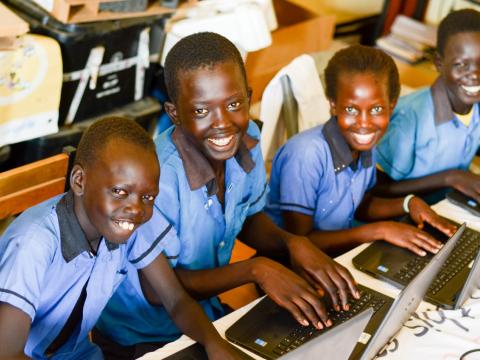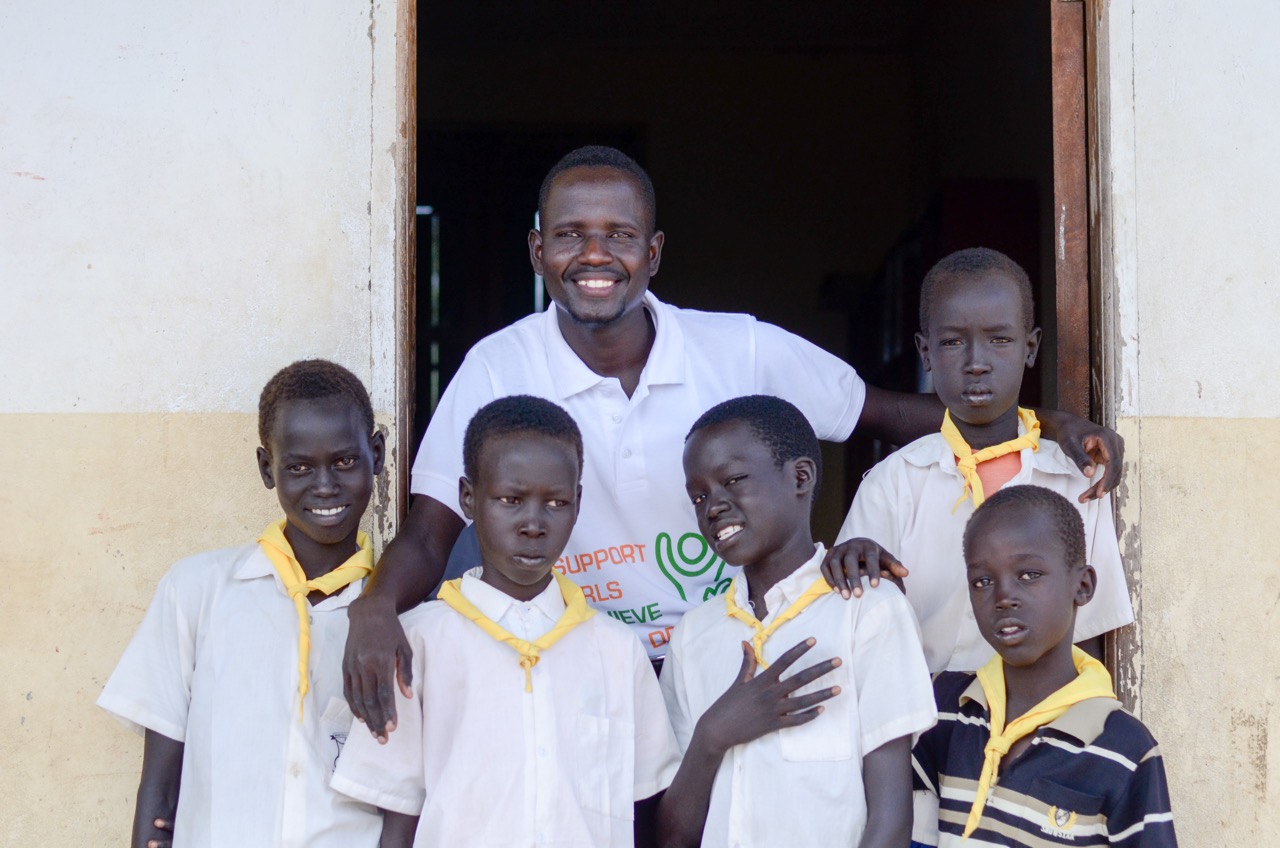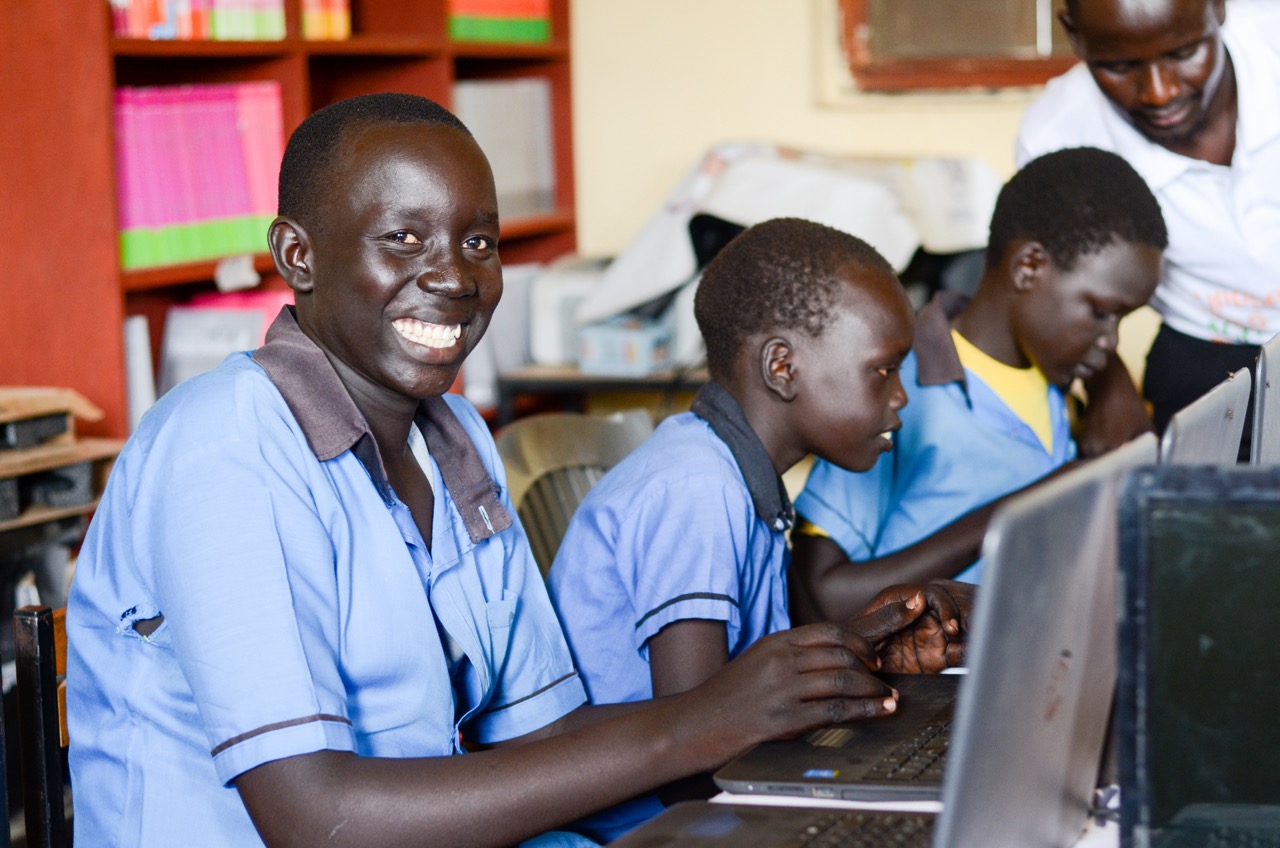Stepping into the future: Computer labs helping South Sudanese children get digital skills

“I used to see computers in the past in shops along the street and I wondered what it would be like to touch one,” says 14-year-old James in Juba.
James, like nearly every school child in South Sudan, didn’t have access to technology that nearly every child in High Income countries by the time they’re in Grade 1.
Here, lessons are always written in chalk and assignments always done in cursive writing. In South Sudan, access to computers and smart phones is one of the lowest in the world. Conflict, low education rates and poverty prevent widespread use.
But James and the other children knew this wasn’t what was being done in other countries.
“There are other things that need to be accessed that are not around, that are not in you mind but that you can learn when you have a computer,” says James, a Grade 5 student.
He wanted to enter the digital world.
Earlier this year, he got the chance.
World Vision – through the World Vision US gift catalogue – set up four computers in the school’s library. Shared among over 400 students in Grades 5 to 8, each learner gets individual access to the computers, with the help of a volunteer computer instructor.
“We bring them in groups, eight people at a time, and we teach them for 30 minutes. We show them how to turn the computer on and off, how to type, how to use Microsoft Office,” says 25-year-old Natana Stephen Charles, the volunteer instructor and a teacher’s college student.
Natana, who ushers the students through the process during several sessions, says that “within a month, they are fully functional.”
“Every child should know how to use a computer. We’re in a modernized world where everything requires a computer. If they (the students) can’t use one, it means they can’t keep up,” adds Natana, who grew up as a refugee in Uganda and returned to South Sudan to help rebuild his country through education.
“When you’re educated, you learn how to solve issues that would other result in conflict,” Natana says.
Inspiring the next generation and ensuring they have access to modern learning tools – including computers - is key to transform lives and end conflict, Natana believes.
“When I watch a student turn on a computer for the first time, I feel happy, I smile,” Natana says.
For James, turning on the computer for the first time felt magical.
“When I used it for the first time, it was here at school. It felt so good, I was just laughing,” James says.
James is determined that a computer will help him chase his dream of becoming a scientist.
Isaac too, a Grade 8 student, learned how to use the computer this year in the new computer lab.
“If we know how to use the computer, we’ll be better in the future. I always come here in my extra time, several times a week. I keep wanting to know how to do more things on it,” Isaac says.
Meanwhile, 13-year-old John is trying to learn to type.
“I love the computer. By the time I finish school I will be able to do everything on here,” he says.
World Vision has set up computer labs in five primary schools, one of the ways the organization is helping nearly 50,000 children have access to education in South Sudan.
“Ensuring children remain in school requires access to equitable quality education that promotes lifelong learning opportunities for all,” says Moses Omara, World Vision’s education advisor in South Sudan.
For the next generation, access to computers is indeed a game changer.
“If it wasn’t for your support, we wouldn’t be able to enter the modern world,” says school principal Bernard Lado, who leads the school that James and John attend.

